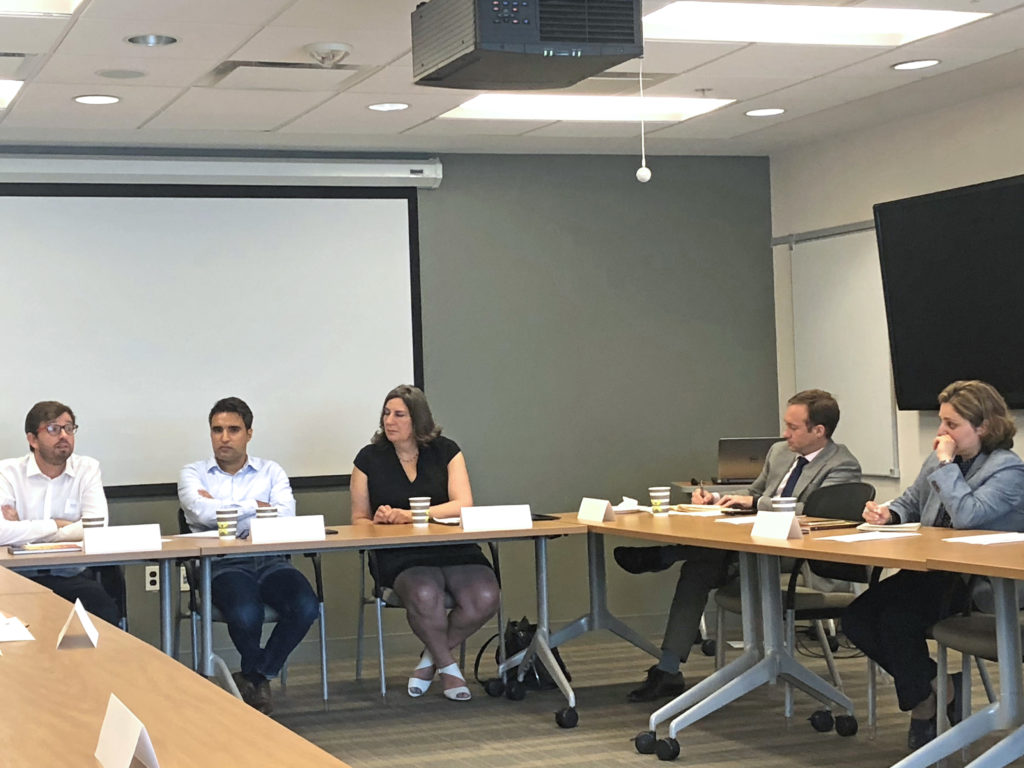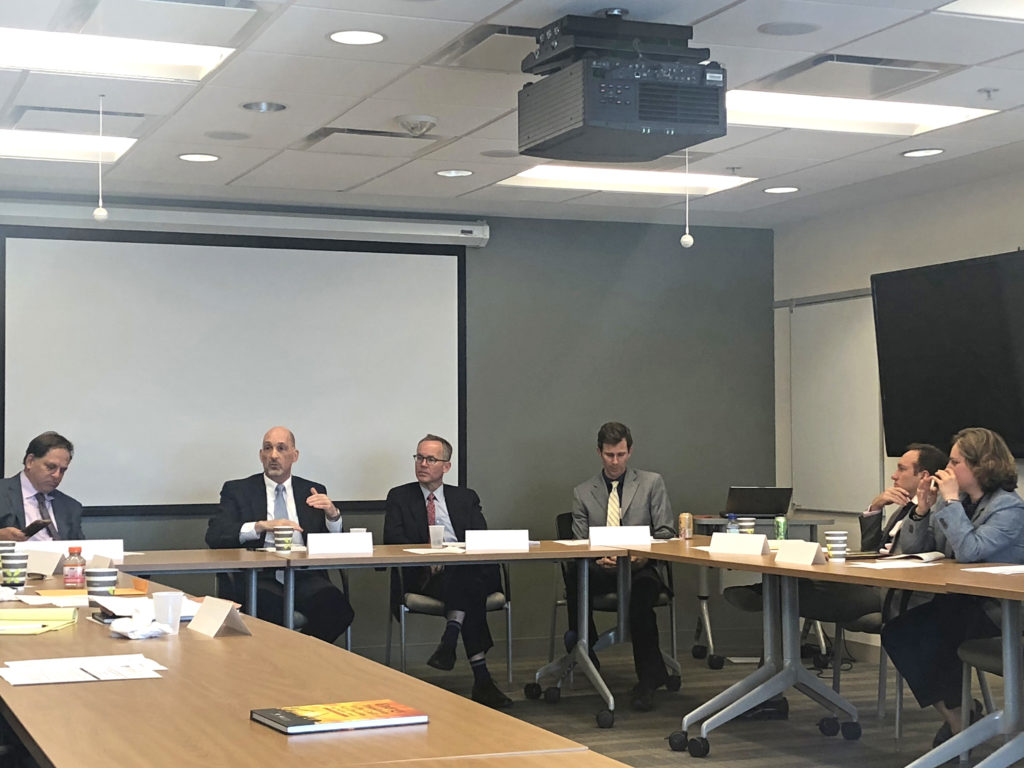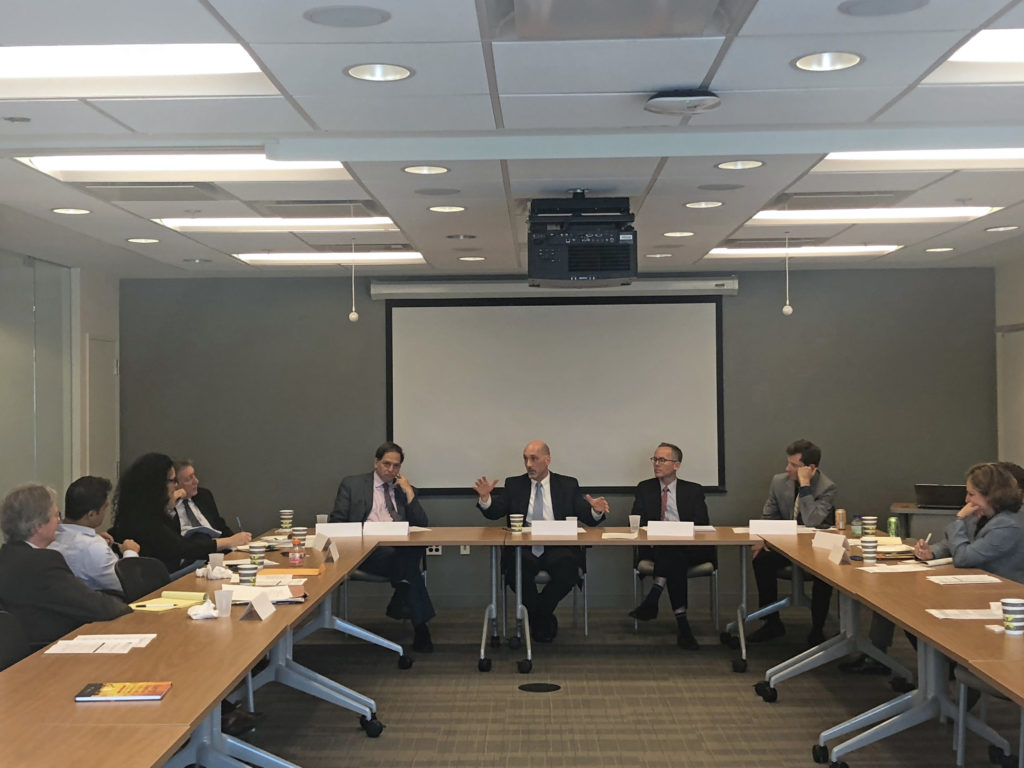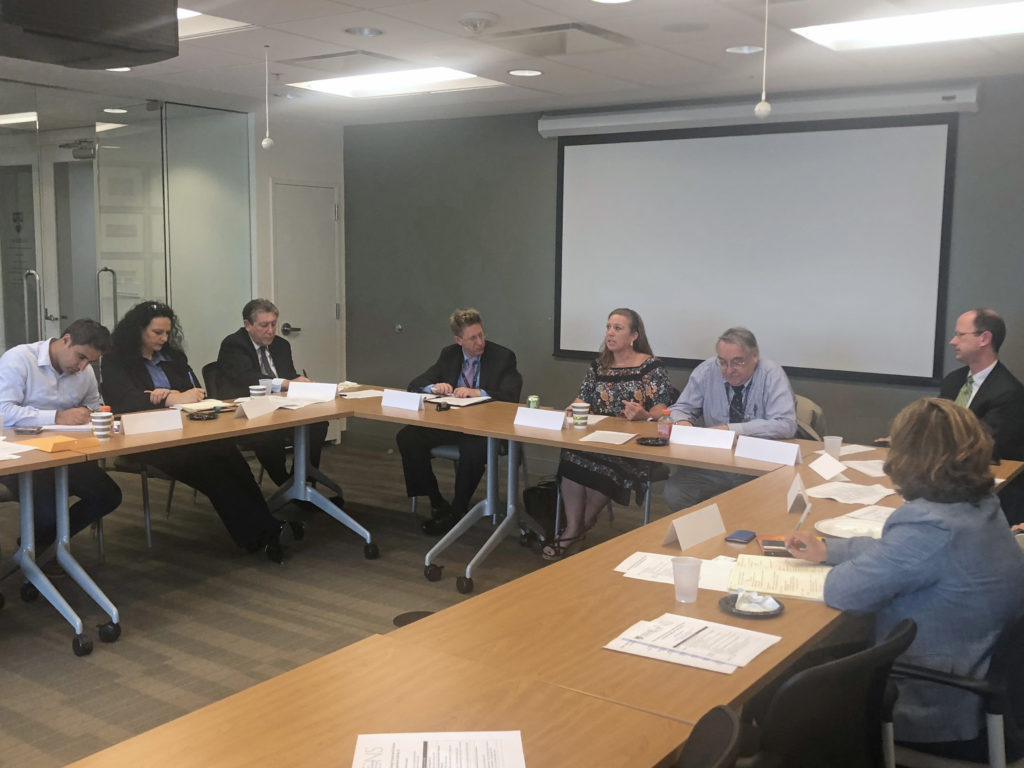July 12, 2018
On June 28, 2018, the James Martin Center for Nonproliferation Studies (CNS) held a workshop to discuss nuclear energy in the Kingdom of Saudi Arabia (KSA) and the pending Saudi–US nuclear cooperation agreement.
The workshop discussed the ramifications of Saudi nuclear energy on Saudi electricity needs, national and regional security, reactor suppliers, and US Congressional action. Participants included experts from the energy, nonproliferation, and industry sectors, as well as Middle East policy experts and Congressional staffers. Divided into four panels, the workshop explored the multifaceted challenges and opportunities the Saudi nuclear energy program poses to nonproliferation, security, industry, energy sectors, and US policy.

Panel I: The Saudi Nuclear Energy Program in Context
The first panel discussed the drivers behind Saudi Arabia’s nuclear program. The speakers analyzed the Saudi energy program as a part of Crown Prince Mohammad bin Salman’s vision for the Saudi economy and his aim to reduce domestic dependency on fossil fuels. Speakers highlighted the multifaceted implications of this push for economic diversification, particularly its effect on the Saudi energy sector. Now that the nuclear program is under the leadership of Minister of Energy Khalid al-Falih, noted one speaker, it is progressing faster and in a more strategic way than it previously had under the King Abdullah City for Atomic and Renewable Energy (KACARE).
Though all speakers agreed that KSA needs additional energy sources to meet growing demand and to further reduce domestic petroleum consumption, most pointed out that it would be uneconomical for KSA to pursue a nuclear energy program to provide electricity. Other energy sources, such as solar and natural gas, are in abundance in the Kingdom and more cost effective. Speakers also pointed to the untapped potential for the country to reduce energy demand through increased efficiency.
Given the lack of a clear economic rationale, Saudi Arabia’s pursuit of a nuclear energy program is better explained by other motivations. Although nuclear energy may have some advantages for niche applications like desalination, the main impetus for the Saudi nuclear program appears to be its regional rivalry with Iran: should Iran pursue nuclear weapons, a Saudi nuclear program would provide the Kingdom with its own potential path to a nuclear weapon.
The panelists also discussed the challenges of staffing the nuclear program with qualified Saudis. The Saudi government has already rejected several other non-nuclear-related bids because they did not meet the government’s “localization” requirement that stipulates a minimum of qualified Saudis must be involved in future Saudi projects. However, several speakers opined that this localization requirement would probably relax over time.
Regarding the potential for energy cooperation within the Gulf Cooperation Council, one speaker noted that the increased risk of cyber attacks likely indicates a downward trend in interstate grid connectivity.

Panel II: Nuclear Nonproliferation, Safety, Security, and Regional Considerations
This panel considered specific proliferation concerns associated with the Saudi Arabia’s nuclear energy program. After briefly discussing the status of nuclear nonproliferation, security, and safety measures adopted by Saudi Arabia, speakers highlighted the relationship between the strategic development of the Saudi program and that of Iran. In particular, participants expressed concerns about KSA’s intentions for its program, given statements by officials that KSA will match Iran’s nuclear weapons, if Iran were to pursue them. Speakers agreed that the Saudi program will be largely influenced by Iran’s actions following the US withdrawal from the international agreement that limited Iran’s enrichment program, the Joint Comprehensive Plan of Action.
All speakers agreed that Saudi Arabia should adopt some version of the International Atomic Energy Agency (IAEA)’s Model Additional Protocol to demonstrate its commitment to nonproliferation and compliance with IAEA safeguards agreements and inspections. This voluntary protocol requires state adherents to provide the IAEA with additional information about all of their nuclear activities and provides agency inspectors greater authority to inspect and detect undeclared nuclear facilities.
Short of the “gold standard” of forgoing enrichment and reprocessing, there are other important measures Saudi Arabia could adopt to demonstrate its nonproliferation commitments. One such measure is a commitment to acquire its nuclear fuel from a foreign supplier for the entire life of the reactor and to return the reactor’s spent fuel to the supplier. Speakers also discussed the possibility of suppliers constructing “black box” facilities such as nuclear power plants, small modular reactors, or an enrichment facility in Saudi Arabia. However, one speaker noted that such “black box” technology is dubiously proliferation-resistant, since in all cases, the Saudi regulator would have access to the technology.
The speakers recommended additional measures the Kingdom should adopt to ensure nuclear safety and security, including:
- taking safety precautions against sabotage of nuclear facilities—including the possibility of missile attacks from rebels in Yemen;
- increasing transparency by opening the nuclear programs to peer review, for example by an independent international advisory board and the World Association of Nuclear Operators;
- instituting an independent and competent regulator to avoid mistakes similar to those made by Japan at Fukushima.
Speakers were concerned by Saudi Arabia’s announced plan to build a canal and a nuclear waste dump to effectively isolate Qatar. The Kingdom should avoid making politically motivated decisions and instead make decisions related to its nuclear program based on their technical soundness. As in the first panel, much was discussed about the importance of building local capacity to support the program’s sustainability. Speakers also covered potential reactions to the program by regional states, including Israel. One speaker assessed that the rapprochement between the two countries would not last if the Kingdom were to pursue enrichment or reprocessing capabilities. Another speaker also noted the ongoing conventional rivalry between Iran and Saudi Arabia, pointing to at least three ongoing proxy wars between them, which may be better indicators of future regional conflicts than nuclear weapons programs.

Panel III: Suppliers’ Perspective
In this panel, participants from the US energy sector discussed their views on Saudi nuclear energy development, drawing extensively from their recent trade missions to the Kingdom. They asserted that whichever country Saudi Arabia chooses as its supplier will have the opportunity to shape Saudi nuclear policy. Speakers on this panel concurred with the previous speakers that, from an economic point of view, it does not make sense for the KSA to enrich uranium or reprocess plutonium domestically. Another speaker noted that, given the Kingdom’s mining experience, the Saudis see uranium mining as a natural extension of their capabilities.
One speaker contrasted the US track record in nuclear cooperation with that of other suppliers, highlighting the advantages of working with the United States. US suppliers, for instance, have ample experience “localizing” the entire program: reactor construction, infrastructure R&D, grid construction, education, regulation, fuel enrichment, lab cooperation, etc. The extent to which the United States could assist and shape the Saudi program would depend, however, on the final terms of the US bilateral nuclear cooperation agreement with the Kingdom. One participant argued that US negotiators should approach the negotiations within the context of the bilateral alliance, and not simply as a pure business transaction.
Even if the United States does not win the bid to construct reactors in Saudi Arabia, several speakers noted, US industry would still stand to gain. In the United Arab Emirates (UAE), for instance, where South Korea won the bid over the United States, US-based Westinghouse gained much, since the Korean APR 1400 reactors are based on US technology. The nuclear industry supply chains in the United States and South Korea are deeply intertwined; regardless of which country wins the KSA bid, industry in both is bound to benefit.
One of the speakers that was involved with the UAE project reflected on that project’s lessons, pointing to factors that influenced its success, such as early engagement with international investors and stakeholders, transparency, adoption of the gold standard, use of expatriate workers on all levels of the program, and early public and stakeholder engagement. The speaker also identified challenges the UAE encountered that would be applicable to Saudi Arabia, such as human capacity and multi-cultural, multi-language construction and operation staff. Despite these similar challenges, there are observable differences between the UAE and Saudi programs, the speaker noted, particularly the program’s pace, its transparency, the extent of reliance on external advisors, and its decision making structure.

Panel IV: What Congress Should Consider
All speakers agreed that Congress would consider a US–Saudi nuclear cooperation agreement within the broader context of US–KSA relations. They noted that congressional views of Saudi Arabia have deteriorated with the country’s intervention in Yemen, and that nonproliferation restrictions and Israeli views on an agreement were likely to be the deciding factors of congressional support. They noted that there is not enough time to pass such an agreement in Congress this year. The speakers agreed that Congress perceives the Saudi nuclear program as a political rather than economic or energy program agreement per se. As such, an agreement that does not include the gold standard would be difficult to pass through Congress, particularly if it lacked basic nonproliferation restrictions such as the adoption of the Additional Protocol. One speaker also noted that many members of Congress regret their support for the 2008 US–India nuclear deal that compromised nonproliferation principles but did not yield any economic dividends. Another speaker noted that, even if a nuclear cooperation agreement is passed, Congress could still prevent its implementation by adding an amendment to the appropriation bill that blocks the funding necessary for its implementation.
